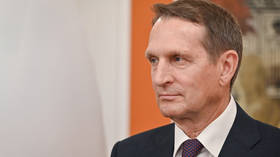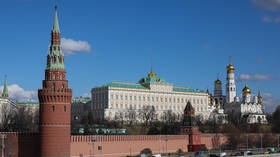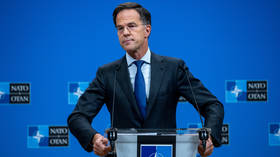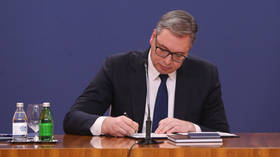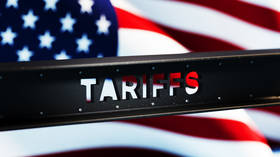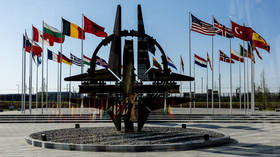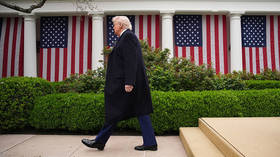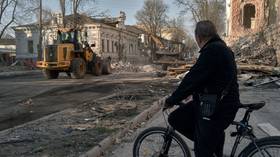Interview with Gleb Plaksin

Gleb Plaksin, a World War II veteran, joined Russia Today to remember the war days. Gleb Plaksin, a son of a Russian army officer who left the country after the Bolshevik revolution of 1917, was born in France. He joined the French Resistance movement in
Russia Today: Could you please tell us more about your days in the French Resistance movement?
Gleb Plaksin: I listed myself in a spear-head company in 1943. We didn't make Germans prisoners and the Germans didn't make us prisoners too. It was a tough campaign. If someone fell in the Germans' hands it was an immediate death. It was really a great day when the American troops landed in France. Then I went through the German lines – it was rather difficult – and joined the headquarters of the 83 Division. I've made lots of friends there. I guess I was the youngest in our unit and I don't know if there is anyone of them still alive. Anyhow, I want to wish them and their family all the best. I remember on September 17, 1943, I fell under a carpet bombing of 400 American bombers in a French city of Nant, and I still don't know how it happened that I'm still alive.
RT: What was life like when you joined the French resistance? What were you up against?
G.P.: It was a very difficult period. We didn't have enough weapons, equipment and food. When I joined the American Army I didn't demand them to give me money for combating on the front line but only asked them to give me weapons, ammunition and some food. I was dressed like a real GI and for me it was perfect as I could eat then.
RT: In 1955, when you returned to the Soviet Union, was it an easy transition to make?
G.P.: No. Of course, there were lots of problems then. For instance, when I first came to the USSR, I had a beautiful Cadillac car of 1937. I drove that car for many years, I crossed 18 countries without any problems, I dreamed of that car much, but when I came to the USSR I was forced to sell it. Then I was directed to Leningrad. There I played as a pianist for a commission. But I was told that the way I played piano is too bourgeois, which didn't fit the party line. I protested saying that when Bach and Beethoven wrote their peaces, the ideas of socialism didn't even exist.
RT: What does Victory Day mean to you personally, Sir?
G.P.: I witnessed twice the parade on the Red Square. Generally speaking, this day played a great role not only in my life, but in the life of the whole country. Of course, the atmosphere then and now is different. We can freely breath now, we can go abroad. I couldn't go to the cemetery where my mother and friends lie for 27 years and, at last, I can. Also, on June 6, 2004, when the world marked the 60th anniversary of landing to Normandy, I was a member of Russian delegation along with President Putin. During the ceremony I was sitting on the second row, right behind President George Bush, which was a proud day for me. President Bush wondered why I was wearing some American medals and I answered that I fought for the American Army.



